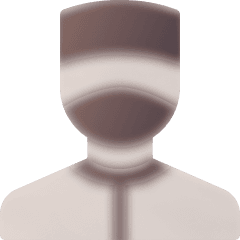I’m Sarah, an award-winning nutritionist specialising in
mental health, emotional eating, and ADHD.
As a proud mum and wife in a wonderfully neurodiverse family, my approach to nutrition is deeply personal. After discovering in 2020 that both my husband and son have ADHD, I have since dedicated my clinical practice to providing cutting-edge, evidence-based support for neurodivergent adults and children. Since then, I have helped clients all over the world achieve a wide range of health goals.
So, what kind of challenges related to eating and diet
might people with ADHD experience?

Impulsivity with Food Choices: Difficulty with impulse control can lead to making spontaneous, less balanced food choices, especially when feeling overwhelmed or stressed.

Irregular Eating Patterns: People with ADHD may forget to eat or skip meals due to hyperfocus on tasks, leading to irregular eating habits, binge eating, or poor nutrient intake.

Sensory Sensitivities: Sensitivity to textures, tastes, and smells can make it harder for neurodivergent individuals to maintain a balanced diet, as they may have a limited range of foods they feel comfortable eating.

Difficulty Following Nutrition Plans: Trouble with executive functioning can make it hard to stick to structured eating schedules or long-term dietary plans.

Emotional Eating: ADHD is linked to emotional dysregulation, which can manifest as using food to cope with stress, boredom, or anxiety and lead to irregular or binge eating.

Dopamine Levels and Cravings: Due to imbalanced dopamine availability, people with ADHD might crave foods high in sugar or fat, as these provide a temporary boost in dopamine and energy

Forgetfulness: Forgetting to plan meals, grocery shop, or prepare healthy foods can result in reliance on convenience foods, which may not meet nutritional needs.

Sleep Disruptions: Sleep issues, common in ADHD, can impact hunger-regulating hormones, leading to late-night eating or difficulty managing hunger cues during the day.

Gut Health and IBS: Many people with ADHD experience gut health issues, including irregular bowel movements and symptoms associated with Irritable Bowel Syndrome (IBS), which can complicate their overall health management.
My ADHD Nutrition:
I take a neuroaffirmative approach, making every effort to provide a tailored, personal, and adapted clinical experience.
In my practice, I emphasise a non-judgmental and encouraging environment that fosters kindness and self-compassion.
We avoid diet culture and adopt an anti-diet approach to build a positive and balanced relationship with food gradually.
I recognise the real challenges food can present, so my recipes, factsheets, and advice are designed to be practical, easy to follow, and accessible. I often incorporate convenience foods and teach smart shopping strategies that help families maintain nutrition without cutting corners. For neurodivergent families, where burnout and the executive functioning demands of constant meal preparation are particularly challenging, I provide simple, easy-to-follow, and practical tools to support their needs.



Before your consultation, you will receive a health and nutrition questionnaire to complete. If you prefer, we can go through the questionnaire together during your appointment.
On the day of your online consultation, we will spend approximately one hour together. I’ll ask about your health goals, concerns, diagnosis, and any treatments you’re currently receiving. The session can be flexible, with breaks as needed, and you are welcome to move around, enjoy refreshments, and make yourself as comfortable as possible. If you’d like, I can record the session for you, and you will receive notes following the consultation.
Don’t worry if you need to reschedule before your appointment—using the booking link, you can change the time or date even on the same day, at no extra charge.








First Name
Last Name
Email *
Phone
Message

Submit








































